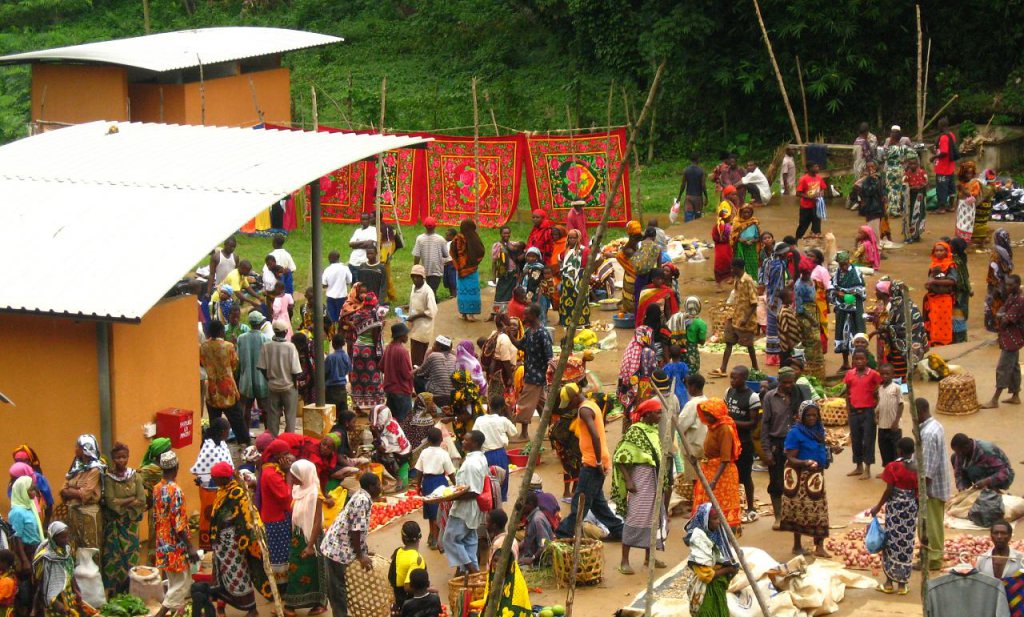“Addressing this Food Security Conundrum certainly needs radical transformation and not just incremental change. A huge shift in policy is required to make smallholder agriculture profitable – while keeping the urban population well fed,” explains Professor Ken E. Giller of Wageningen University. Read his article in full here.
COVID-19 and its disruption of global food chains during the past year has brought back to the surface many sad realities about the world of food and agriculture. Among these is that food security and sovereignty is a pillar of peace and economic independence in many areas. Professor Ken E. Giller (Wageningen University) discusses this in the sub-Saharan African context by exploring a trifecta of issues that create a Food Security Conundrum in the region.
Dr. Giller explains a set of interconnected realities that, together, pose a “wicked problem” to national food security in sub-Saharan African countries. He calls it the Food Security Conundrum. First of all food security requires “abundant, affordable, and nutritious food for the growing population.” That goal is hard to reconcile with part two of the Conundrum, which is that agriculture and exports are a large and integral part of many African economies. Thirdly, much farming in the region is still on a small scale or up to individual households (often incorrectly labeled as subsistence farming, as Giller points out), and most rural families do not have enough resources or land to invest in better farming practices.
Dr. Giller also brings up other challenges to achieving UN Sustainable Goal 2 (zero hunger) in the region through sustainable farming practices. One of these is that much of the arable soils that are already being used regularly for farming suffer from poor fertility. Giller discusses integrated soil fertility management (ISFM) and crop rotation and planting of legumes as possible solutions in Africa. “Intercropping and rotations with grain legumes are a key component within ISFM [...]. Legumes also offer the potential for both diversification of cropping systems and intensification, giving extra benefits in terms of human nutrition, suppression of pests and diseases and enhancing yields of other crops in rotation.” This is an illustration of the conundrum at hand and how it could be addressed. It is a testament to the significant change agricultural practices and systems in the region must go through in order to produce food more efficiently.
After reading Dr. Giller’s article, what can the international community do more to help Africa in achieving food security sustainably? Is there one? On another note, has the Food Security Conundrum, as well as possible solutions to it, changed because of COVID-19 and, if so, how?
Although commonly referred to as smallholder or ‘subsistence’ farmers, the majority of rural households are net consumers of food – they cannot subsist on farming alone.The Food Security Conundrum
Dr. Giller explains a set of interconnected realities that, together, pose a “wicked problem” to national food security in sub-Saharan African countries. He calls it the Food Security Conundrum. First of all food security requires “abundant, affordable, and nutritious food for the growing population.” That goal is hard to reconcile with part two of the Conundrum, which is that agriculture and exports are a large and integral part of many African economies. Thirdly, much farming in the region is still on a small scale or up to individual households (often incorrectly labeled as subsistence farming, as Giller points out), and most rural families do not have enough resources or land to invest in better farming practices.
Dr. Giller also brings up other challenges to achieving UN Sustainable Goal 2 (zero hunger) in the region through sustainable farming practices. One of these is that much of the arable soils that are already being used regularly for farming suffer from poor fertility. Giller discusses integrated soil fertility management (ISFM) and crop rotation and planting of legumes as possible solutions in Africa. “Intercropping and rotations with grain legumes are a key component within ISFM [...]. Legumes also offer the potential for both diversification of cropping systems and intensification, giving extra benefits in terms of human nutrition, suppression of pests and diseases and enhancing yields of other crops in rotation.” This is an illustration of the conundrum at hand and how it could be addressed. It is a testament to the significant change agricultural practices and systems in the region must go through in order to produce food more efficiently.
From an agronomic perspective, poor soil fertility is the primary factor that limits agricultural productivity in sub-Saharan AfricaUltimately, Professor Giller’s article tells us that “focus on diversification of cropping systems to provide food baskets that meet the household's nutritional needs is warranted, including attention to seasonality of supply and demand.” The challenge then, is to find multiple efficient pathways to this outcome that fit and serve the people of sub-Saharan Africa.
After reading Dr. Giller’s article, what can the international community do more to help Africa in achieving food security sustainably? Is there one? On another note, has the Food Security Conundrum, as well as possible solutions to it, changed because of COVID-19 and, if so, how?
Ken E. Giller is an academic, author, and professor of Plant Production Systems at Wageningen University’s Centre for Agroecology and Systems Analysis (WaCASA). Dr. Giller has previously taught at Wye College, University of London, and the University of Zimbabwe. His work focuses on topics such as sub-Saharan African farming and soil fertility.




Meanwhile in Africa the old Western type discussion is on: is change towards that kind of new future better served by socialism or by capitalism?
I guess I am kind of a social liberal, and probably John Stuart Mill already was: private initiative should be stimulated but government is needed to protect the weak and guard public interests.
Ken Giller a warm welcome to Ifama2020.